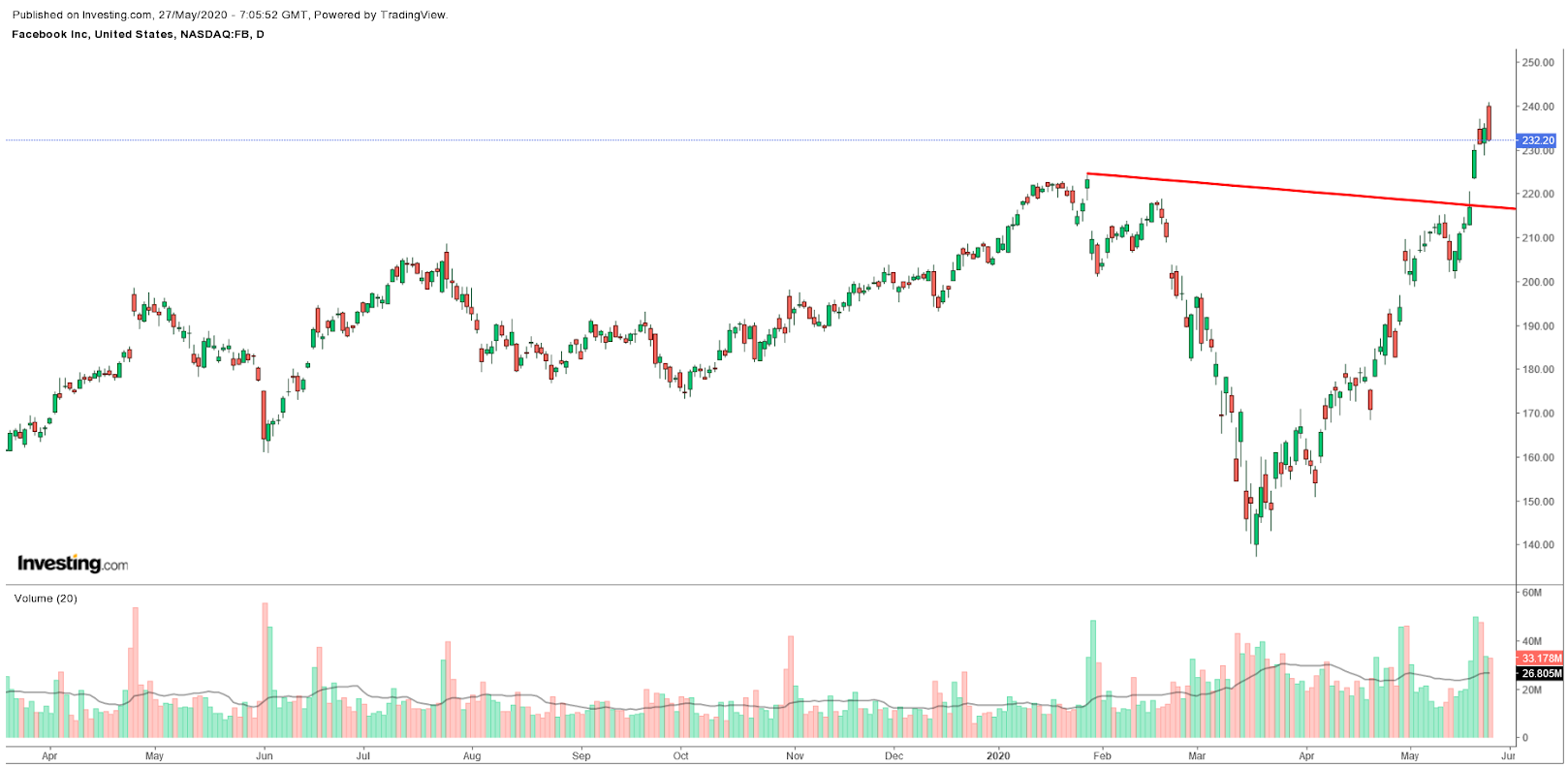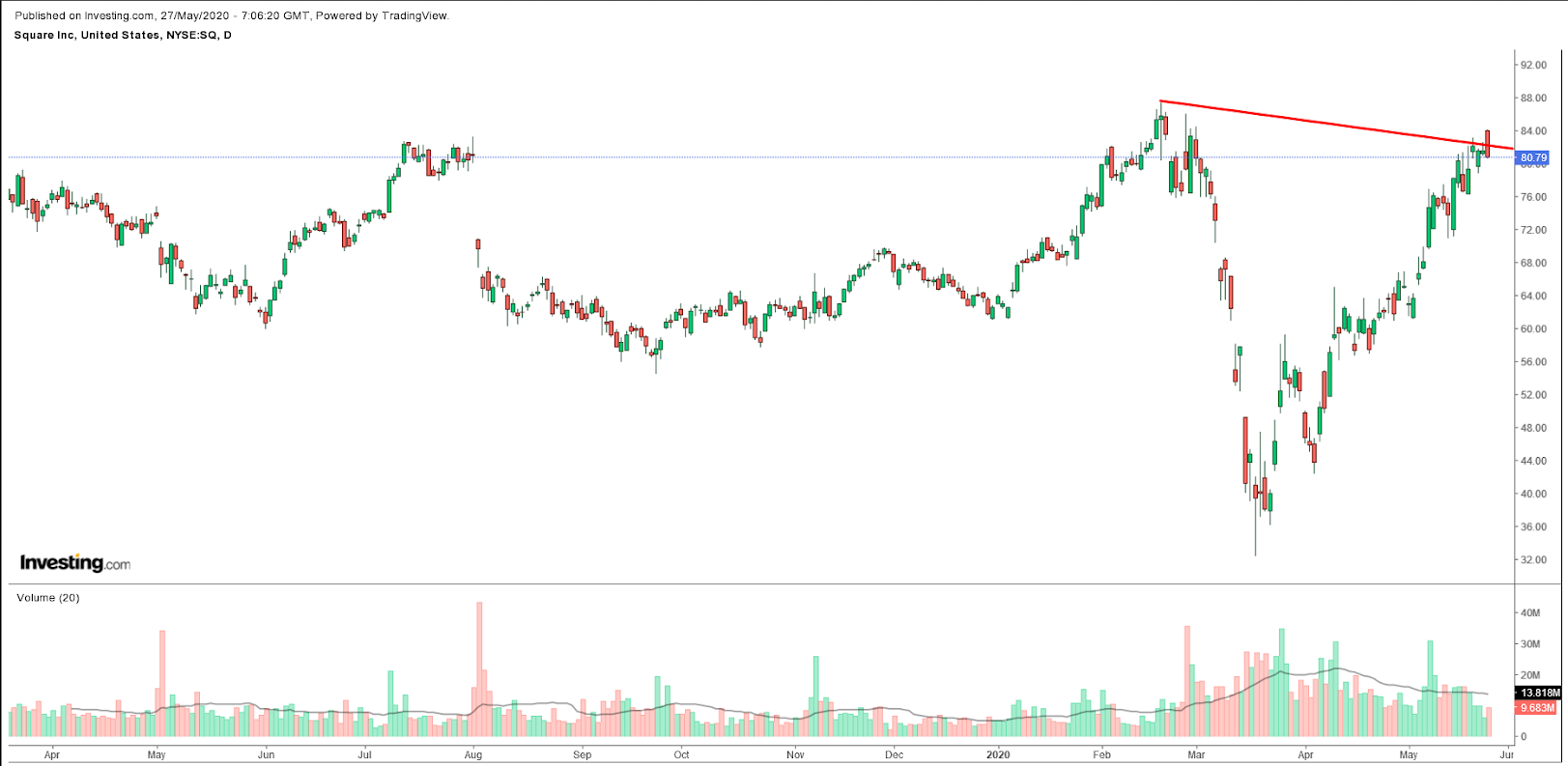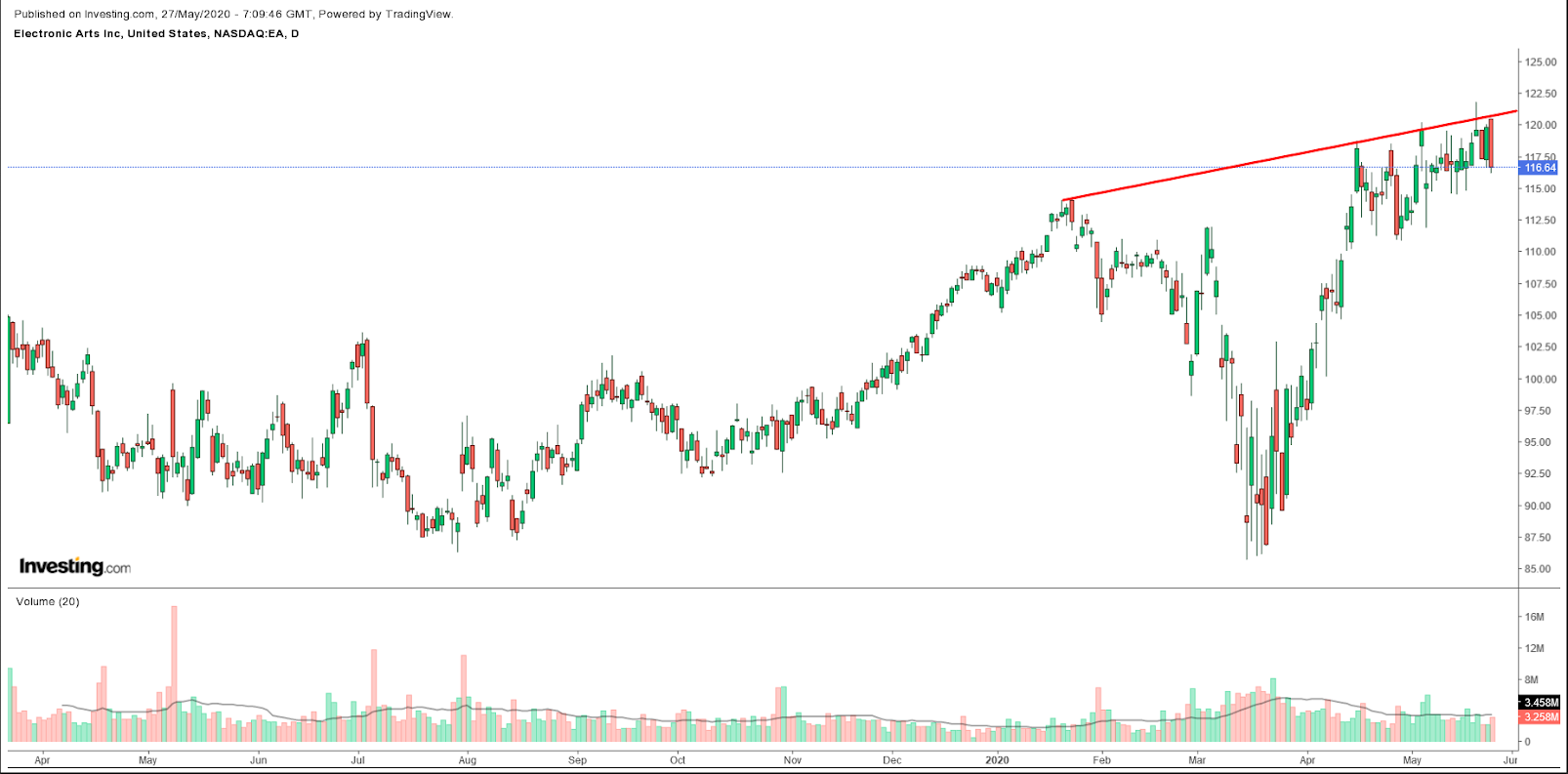3 China-Proof Stocks To Consider As Trade Tensions Reignite
U.S.-China tensions could become a powerful headwind for the stock market in the coming weeks as the war of words between Washington and Beijing heats up.
Trade, the handling of the COVID-19 pandemic and China's move to implement national security laws on Hong Kong are all potential catalysts for further deterioration in already testy relations between the two economic superpowers.
The main concern is that the U.S. and China could resort to another wave of tariffs, which would be a major blow to both economies already devastated by the coronavirus pandemic.
As the prospect of U.S.-China trade war looms, companies unaffected by increased tariffs have a competitive advantage. Here are three such names that should be on your radar:
1. Facebook
With a potential U.S.-China trade war more likely to affect goods-producers with significant revenue exposure to China, internet content companies, which don’t rely as much on supply chains and manufacturing, should suffer less, making Facebook (NASDAQ:FB) a good bet going forward.
Shares of the world's largest social media network, are up nearly 28% over the past year, significantly outperforming the S&P 500’s 6% gain over the same time frame. The stock jumped to an all-time high of $240.90 on Tuesday before closing at $232.20, giving it a market cap of $661.5 billion.
For the most part, Facebook and its host of apps, such as Instagram and Facebook Messenger, are banned in China. Even so, the social media giant is still growing its user base. According to the corporation, approximately 3 billion users interacted with one of more of its apps each month in the first quarter, up from 2.9 billion in the preceding quarter.

The Menlo Park, California-based social media company beat analysts’ estimates for quarterly revenue when it reported results for the first three months of the year on April 29.
Facebook said advertising revenue was roughly flat in the first three weeks of April compared with the same period last year, fueling optimism about restored ad business following a sharp drop in revenue in March when lockdowns were imposed across the world to contain the rapid spread of COVID-19.
Another reason to be optimistic: earlier this month Facebook announced it was launching Shops, a service that will enable small businesses to display and sell products on the world's largest social network's platforms, as it beefs up its e-commerce offerings.
2. Square
Payment processing provider, Square (NYSE:SQ), is one of the top China-proof names to consider as tensions escalate. Not only does the U.S. account for the company's largest market, but Square also has limited exposure to China, serving only the U.S., Canada, Australia, Japan and the United Kingdom.
Run by Twitter CEO Jack Dorsey, Square’s stock has gained almost 26% in the last 12 months, outperforming the S&P 500 by a wide margin over the same period. Shares ended at $80.79 last night, not far from their recent 52-week high of $87.25, giving the company a valuation of $35.5 billion.

While the San Francisco-based mobile payment service reported a surprise loss in the first quarter on May 6, its consumer-facing Cash App has brought fresh positive momentum. The point-of-sales service provider generated year-over-year profit growth of 112% as it added its largest number of net new-transacting active customers.
The digital payments processor benefited as people opted to get their government stimulus checks directly deposited to the Cash App, helping drive Square’s highest-ever monthly direct-deposit volumes in April.
On Square’s earnings call, Chief Executive Dorsey explained that direct deposits provide a “huge opportunity” for Square since users taking advantage of the service “are some of the most engaged on the platform.”
3. Electronic Arts
Electronic Arts (NASDAQ:EA), which is widely considered one of the leading videogame publishers, also has limited revenue exposure to China and generates most of its sales within the U.S.
Videogame sales have rocketed in the last two months as the COVID-19 pandemic led millions of people to stay at home. The result: U.S. sales in March reached their highest level in over a decade.
The stock, which settled at $116.64 last night, has gained around 26% over the past year, giving it a market cap of $33.7 billion. It recently touched a fresh 52-week high of $121.75 on May 20.

The Redwood City, California-based company announced earnings and revenue which easily topped consensus estimates on May 5, as shelter-in-place measures to stop the spread of COVID-19 boosted digital sales.
Earnings per share totaled $1.07, much better than expectations for EPS of $0.97. Net bookings, which are a common non-GAAP figure used by videogame companies to capture digital and physical sales, came in at $1.21 billion, beating estimates of $1.18 billion.
The company said that revenue from live services, including the subscription-based "EA Access," in-game purchases and other items, surged about 17% from a year ago to $832 million.
The upbeat results prompted EA to boost its guidance for the year ahead. The videogame giant said it expects fiscal 2021 earnings of $3.35 a share, and net bookings of $5.55 billion, beating analysts' average estimate of $5.37 billion.